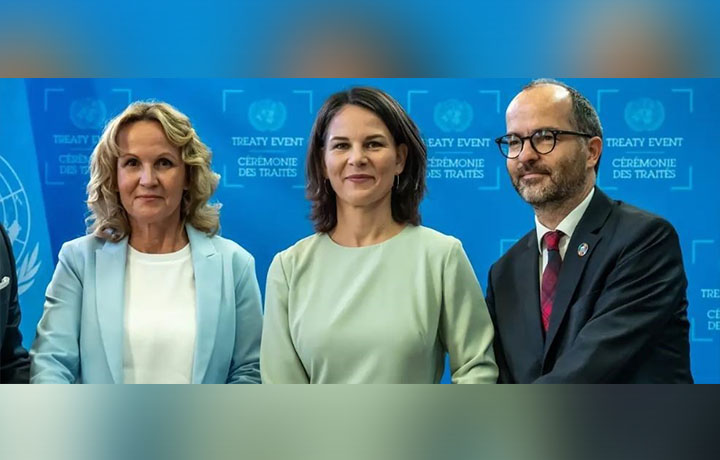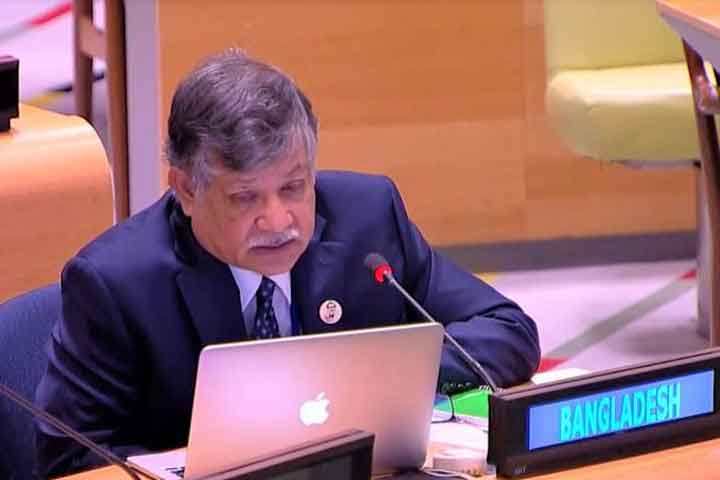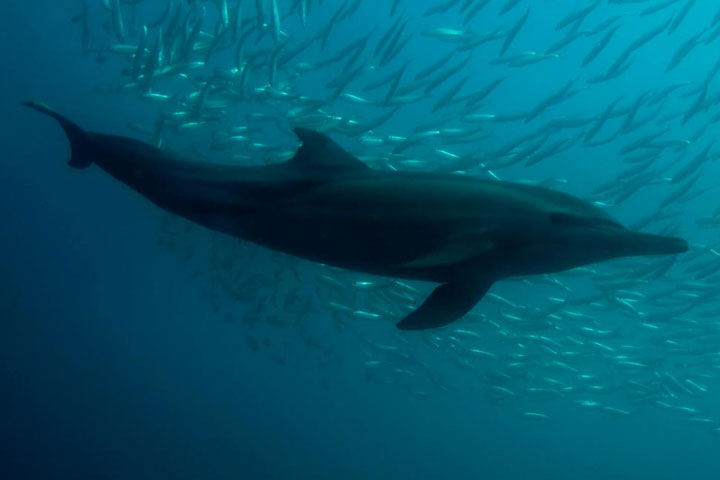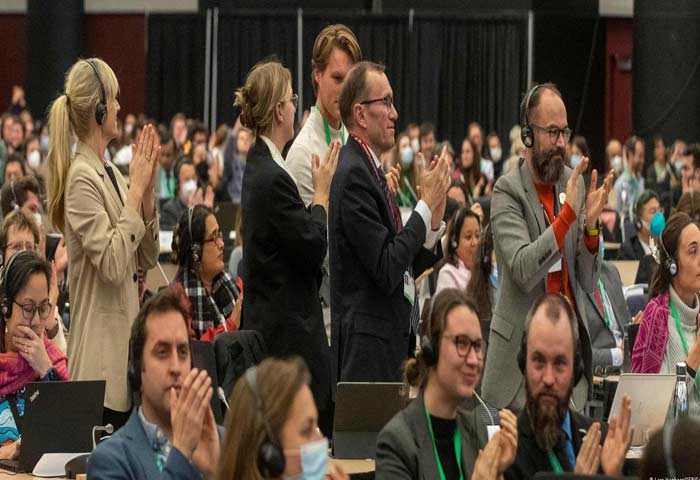Montreal: World strikes 'historic' deal to protect nature
Global leaders have agreed to protect and restore a third of the Earth's natural areas, and eliminate or redirect $500 billion from environmentally harmful subsidies to fund the deal.
In a landmark deal, more than 190 nations have agreed a plan to protect and restore 30% of the Earth's oceans and land by 2030 to stave off the threat of mass plant and animal extinction.
Though not legally binding, it's "the largest agreement to protect land and sea in history," said Brian O'Donnell, director of Campaign for Nature, which lobbied to expand protected areas in the lead up to the conference.
The Chinese-brokered deal to protect ecosystems and halt biodiversity decline "provides some hope that the crisis facing nature is starting to get the attention it deserves," O'Donnell added.
Struck in the early hours of Monday morning after two weeks of fraught negotiations at the COP15 United Nations Biodiversity Conference, the "historic" Kunming-Montreal deal agreed to reduce the risks to biodiversity from pesticide use. It also aims to combat invasive species, and protect the rights of Indigenous peoples as guardians of local ecosystems — a key demand from activists.
Officials also agreed to redirect hundreds of billions of dollars' worth of subsidies that support environmentally harmful industries and to allocate more money to combat species extinction.
"The global community now has a roadmap for the protection and restoration of nature and its sustainable use — for present and future generations," European Commission President Ursula von der Leyen said in a statement.
Canada's Environment Minister Steven Guilbeault, who was hosting the conference in Montreal, compared the outcome to the UN's historic 2015 Paris Climate Agreement, wherein nations agreed to keep global heating below 2 degrees Celsius (3.6 Fahrenheit).
"It is truly a moment that will go down in history, as Paris was for climate," said Guilbeault.
Life on Earth depends on rich biodiversity
Human activities, like clearing of habitat for agriculture, are the main drivers of massive decline in plant and animal species on Earth. Scientists have predicted that 75% of the world's biodiversity could disappear in just a few centuries – in a phenomenon being called the "sixth mass extinction."
The consequences of such losses are severe, complex and wide-reaching. In addition to threatening food security and water sources, it also worsens climate change by taking away the Earth's natural carbon sinks, such as peatlands and tropical forests. These sinks suck carbon dioxide out of the atmosphere and prevent it from further heating the planet.
Currently, less than 17% of the world's land areas and 10% of the world's oceans are officially protected. If countries stick to the deal, it has the potential to protect wildlife, help combat the climate crisis, and safeguard ecosystems that are vital for life on Earth.
"Moose, sea turtles, parrots, rhinos, rare ferns and ancient trees, butterflies, rays and dolphins are among the millions of species whose survival and populations will be greatly improved if this agreement is effectively implemented," O'Donnell said.
Protecting nature would safeguard the economy too, according to the World Economic Forum. Around $44 trillion (€42 trillion) — 50% of the world's economic output — is dependent on nature-based industries, said the organization.
COP15 deal almost failed over financing difficulties
A "peace pact with nature" was the COP15 motto. And for that to happen, negotiators needed to figure out where the money would come from to fund a robust deal. Like the COP27 climate talks in Sharm El-Sheikh, Egypt, in November, financing was a major roadblock for global leaders who went into overtime trying to reach a compromise.
Dozens of Global South nations, including Brazil, India, Indonesia and many African countries that are home to particularly biodiverse and valuable ecosystems, demanded $100 billion per year, or 1% of global GDP, by 2030 to pay for habitat protection and restoration, considerably more than what is in the pot now.
"We see a market emerging where countries of the South say that they will not commit to strong ambitions without seeing corresponding funding," said Sebastian Treyer, executive director of the think tank IDDRI.
Rich countries to pay $30 billion annually into a new fund
Wealthy nations rejected a request from developing countries of the G77 group to create a special biodiversity fund, arguing that money could flow faster and more effectively through existing mechanisms.
As a compromise, a fund will be created under the Global Environment Facility, a 30-year-old environmental organization. Rich countries, such as those in the EU, are to pay $20 billion into the fund starting in 2025, and $30 billion from 2030. The money will come from both public and private sources.
However, critics say it isn't yet clear how the money will be used and where it would have the greatest impact. This risks wasting resources, said Lina Barrera from Conservation International — something "we don't have time for" she said.
Businesses will also only be asked to report on the impact of their activities on biodiversity and will not be obliged to do so, as many had called for.
The agreement also fails to specify targets for species protection by 2050, critics said. Instead it states that the human-induced extinction of threatened species should be stopped, and that extinction rates must be reduced tenfold.
Subsidizing environmentally harmful industries a key threat to biodiversity
Reducing the subsidies given to industries that harm the environment was also a crucial part of the COP15 negotiations. Each year, around $1.8 trillion is handed out to make gasoline and kerosene cheaper for buyers, according to the Earth Track think tank. A further $470 billion goes towards polluting, industrial agriculture and distorts the real cost of food and other products, according to the United Nations.
Global leaders agreed to redirect $500 billion worth of these subsidies by 2030.
"Now the hard work begins. It's time to make good on the promises made in Montreal and ensure that the targets in the framework are met," said Barrera from Conservation International. "With 1 million species at risk of extinction there is no time to waste."
20 Dec 2022,09:47


















 Live Tv
Live Tv









